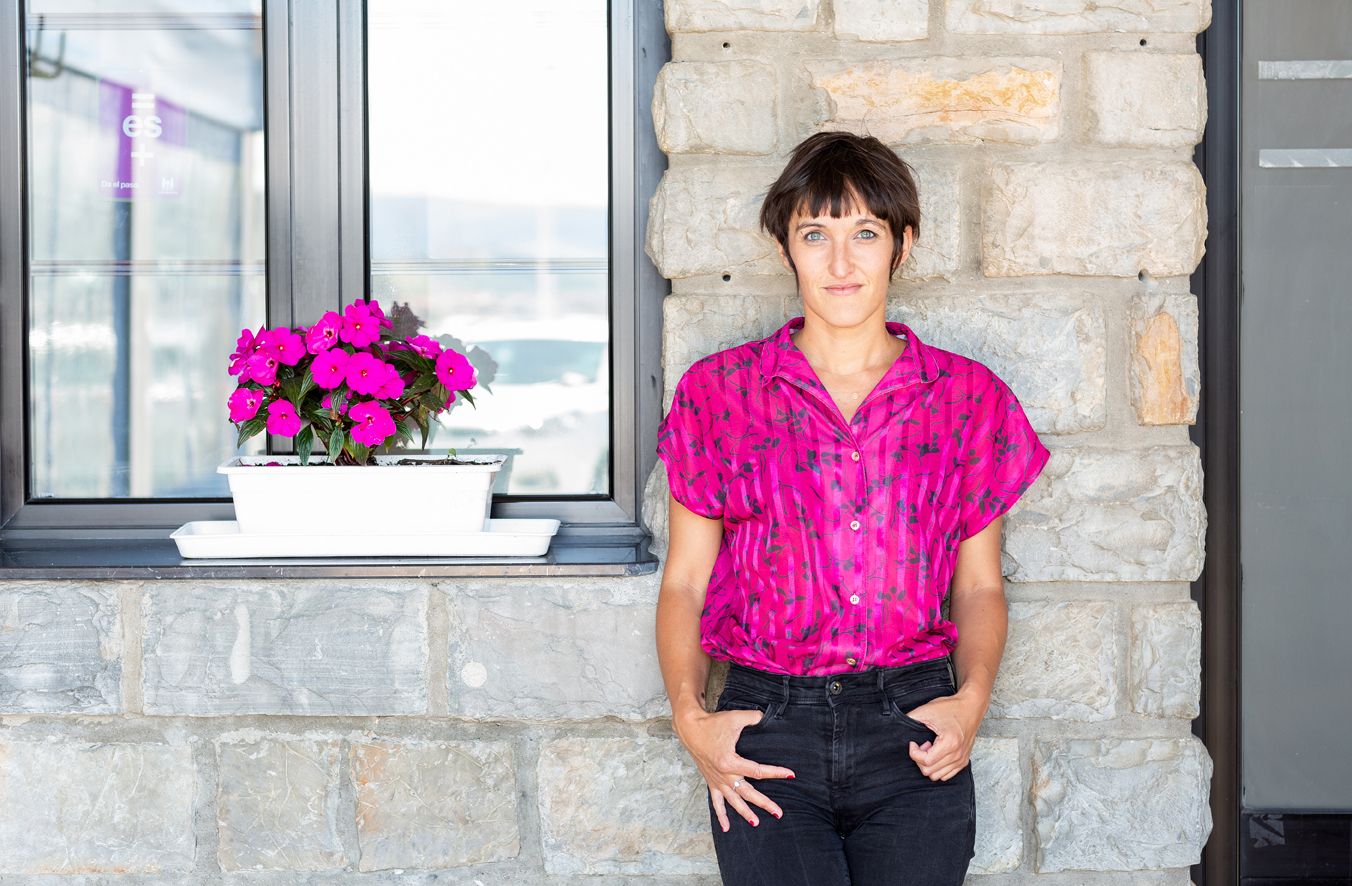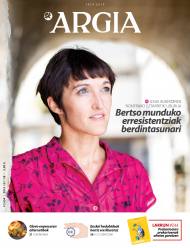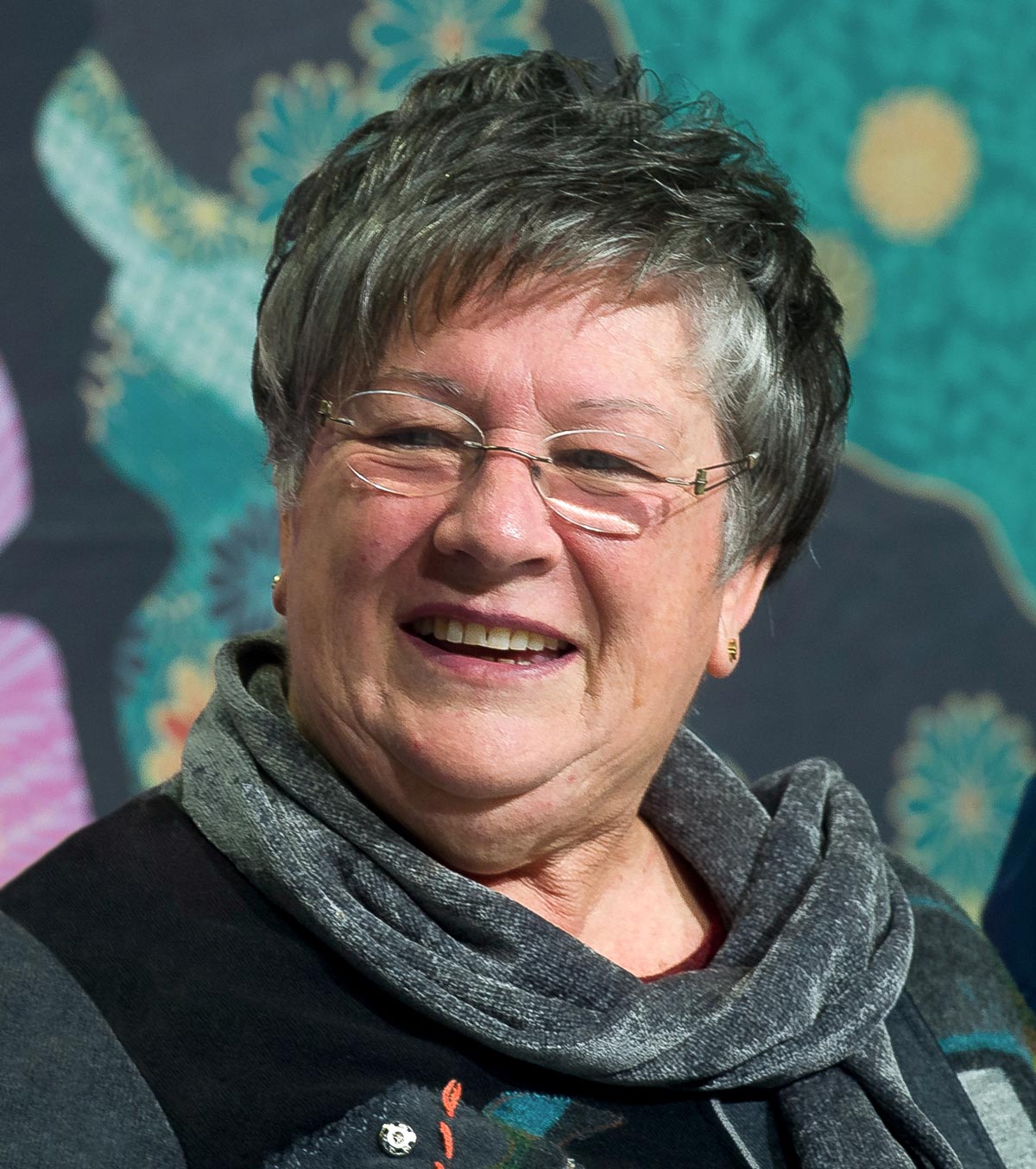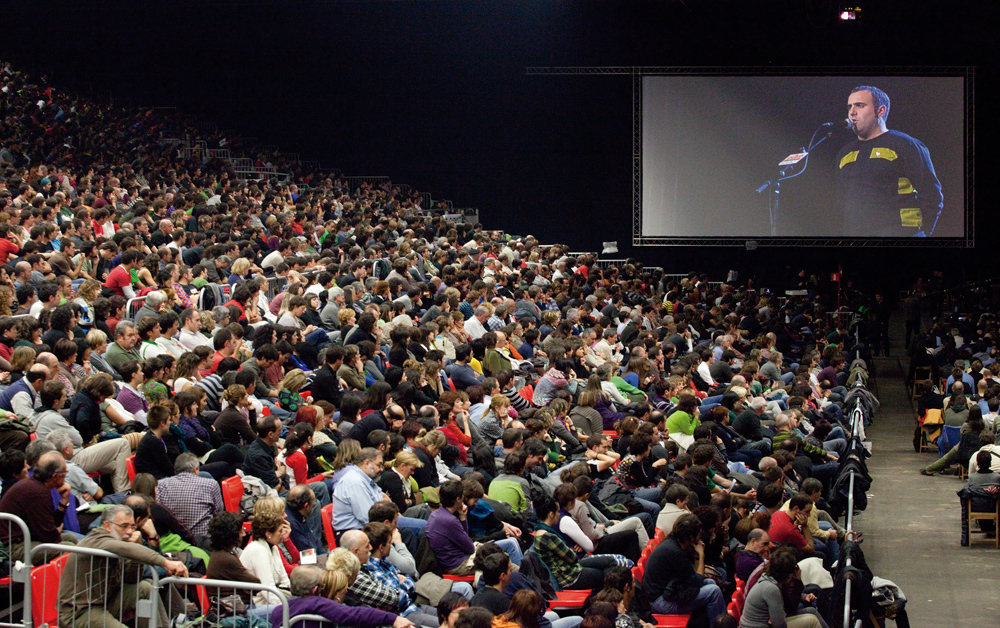"It's not a comfortable book, because it says violence. But it's a love book."
- We've met in Getaria to talk about the book Eztarritik. The book is a milestone in the trajectory of women in Bertsolaris, because after that you can't say "I didn't know" or "I don't understand".

You've interviewed fifteen bertsolaris who today walk from place to place. Explain.
"The reading we've made of women in the past has often been wrong because we've started from prejudices, because we don't have any testimonies of their thinking."
Because one of the objectives of the book was to take the temperature to the present. It is a work that emerges in the midst of a debate and tension. Those of us who are now wanting to pick up the thoughts, the illusions, the challenges, the pain, the joy that we have. I don't know how we're going to look at this work in 30 years, but I know we don't have that from the improvisers of 150 years ago, to know from them what they're doing, what they think, if they have articulations between them -- many times the reading we've made of women in the past has been wrong, because we've started from prejudice, because we don't have any witnesses to their thinking.
On the other hand, it had to limit the measure, as the books in the Lisipe collection are usually shorter than this one. It seemed to me that the 15-year-old was a good sample to measure today's.
You say that it has emerged in the midst of a debate. What is the debate in Bertsolaris today?
"We know, for the first time we are articulated the feminists of the world of Bertsolarism. That is what has placed the gender conflict at the forefront of the world of Bertsolarism. Resistance, fears, unpublished speeches have emerged when the subject has gained strength"
More than a topic of debate, I would focus on the time we live in. The road has been made since the first women’s meeting in Azkizu in 2003 (taking into account the road already made). An exchange of experiences took place at this meeting. Since then, gender issues have been raised many times in the meetings we have held in the plaza. Numerous articles have been published by Bertsolaris women, talks, courses, university works, we have created spaces to sing together… so, for the first time we know, the feminists of the world of Bertsolaris are articulated. And that's what has placed the gender conflict at the forefront of the world of Bertsolarism. At a time when this issue has gained strength, resistance, fears and very old speeches have emerged.
In the reflection process carried out by the Bertsozale Elkartea Association in 2018, the workshop on gender was the most multitudinous and in other workshops this topic also emerged, as being transversal it touches everything. As such a broad and diverse group, conflicts can arise in different aspects: from diagnosis to rhythms, forms, etc., depending on the needs and interests of each. As in all processes of change, the debate is open. I look at places where there's no debate and they look like peaceful spaces, but ... This debate is doing something about this in very vivid places and where there are more shocks.
Not all the women that appear in the book agree with the feminist path that has been made in Bertsolaris. Some of them look out. He also wanted to introduce these. Why?
Because those views are also part of the present and must take place. In addition, in the process of reflection of the Bertsozale Elkartea Association there was a group of women who stated that their voice and discourse were not taken into account. I thought it was important that it should also do so. On the other hand, it seems to me that the concepts of "inside" are dangerous: nobody is who to say who is outside and who within, everything that is identified as a feminist is feminist. And awareness or being a feminist isn't the label you put on a day, it's a continuum, it's a lifelong job. All of us who have participated in the book have ever been in some other position or in other emotions. Faced with the debates that were taking place in Azkizu in 2003, I had thought since I was 19 years old that this was a conflict of the previous generation and that we were free from it, that they talked about things that were already over. Then the plaza and everyday life have led me to feel and think differently.
"I think it is important that there should be no generational collisions"
I think it is important not to create a generational shock and strengthen the articulation between feminists, not to tax. Those of us who agree on certain points have not agreed before. I see perfectly what has led us to articulate: to create together, to know each other. Because many times we look from afar, from contradiction or from fear. The system itself leads us to face up to it. The closeness that involves co-creating, recognizing our experiences, sharing the context leads us to another place. Starting from practice instead of starting from speech, from mind, from the abstract, brings us closer. That is why the Ez da Casualidad and Ahalduntze Bertso Eskola sessions have been so important, for example.

In 22 sections, you have organized the contributions of the people interviewed through their experiences and reflections. Each section shows a mechanism to master the bertsolarism of women. Have you taken them from any source or are they the ones you have identified and designated?
"The difficulties of many Bertsolaris women do not come from creating an appropriate text with the right technique, but from the difficulties of finding a position"
The seed of this work was my lecture for the UEU Course on Gender and Bertsolarism. At that conference, I took authority as a theme, how authority is built and disbuilt in the world of bertso, but outside the text. Because I saw that the difficulties of many Bertsolaris women did not stem from the creation of an appropriate text with the right technique, but from the difficulties in finding a position. It seems that when bertsolari opens his mouth in front of the microphone, the exercise of authority begins, the judgment, the measurement, the valuation, is totally linked to Bertsolari. But I believe that it starts much earlier, and that the construction of authority, or the reasons why one touches or does not touch oneself, are more related to everything else than to the creation of a proper text.
To the first respondents, I asked a unique and comprehensive question: Have you been influenced by reading it as a woman in bertsolarism, in the margin of movement? And if it's affected you, how?
When they answered, each took that question at one end and many experiences were repeated. If I identified any oppression in what I heard, I tried to name it. And I tried to see if anyone has theorized about this somewhere else and at another time. The effort has been to bring those theories into the world of bertso. Crossing the experiences of feminist and bertsolaris theories. The theory lies in the experiences, my job has been to bring it to light and create a narrative.
If I wrote the book now, I would add a mechanism 23: silence.
Is silence what you received with the published book?
"The hot response and the cold 'domestic' response we have received from other areas has been very decompensated"
The warm response we have received from other quarters (journalists, writers, readers outside the world of Bertsolaris) and the cold “domestic” response has been very decompensated. We have recently been left to eat ten women who have participated in the book to share the reactions that each one has gathered around them, since each one of us is from a school of bertsos and an environment. And we hardly had anything to say about the reactions of the men of the bertso world, because to each of them the men in their vicinity have not said anything. We on the part of women have received a broad and positive response. The book was presented on March 6, it was Tuesday, that Saturday we had the Bertso Eskola Ahalduntze, and in those three days it was read by all the students of the Bertso Eskola Ahalduntze.
"I have the impression that this is not an incomprehensible issue, but a power struggle"
10 years ago, when we started thinking, talking and singing explicitly about these issues in the world of Bertsolaris, we had an illusion: maybe some things were still unsocialized, we would have to explain them, maybe we didn't understand them well enough, and there would be a lot of people who didn't understand what "oppression" or "inequality was." After 10 years of work – eleven conferences, formations, articles, meetings, verses – and after this book – I have the impression that this is not an incomprehensible issue, but a power struggle. We've explained the theory and how we live it in our daily lives. The sociological study last year revealed how Bertsolaris women feel. If after that silence is imposed, it must be understood as a resistance.
"There are men who have left the Brotherhood and have positioned themselves in feminism, and it has also had a price for them."
However, there are exceptions, and it is noteworthy: there are men who have left the Brotherhood and have positioned themselves in feminism, and it has also had a price for them. The situation makes us see that it is impossible to be on both sides, as the Brotherhood is based on defeating women. And if a man stands for the empowerment of women, the Brotherhood will also question women. Likewise, the women that the Brotherhood recognizes are those who depart from feminist practices, from the collective work of women and from alliances, and do not question the Brotherhood.
Maybe it's good that this book generates silence, because everyone has a lot to think about these issues.
There are different kinds of silence. One thing is to look at them in the eyes, to shut up next to them, to think -- a sentimental silence. We feel this in some and we appreciate it, we all need times of silence. But another kind of silence is behaving as if nothing had happened, demeaning our experiences and our thoughts, deliberately ignoring them, and it's also there.
It's not a comfortable book, because it says violence. But at the same time, it's a book made from love. I think he's passionate about bertso.

A book like this is written when you're strong. Instead, you told me you were weak before you started the conversation.
Before writing and publishing the book, we knew it would be uncomfortable “inside the house.” It is not a work of “internal consumption”, that is why we have published it in the feminist thought collection of a literary publisher, as one of the objectives was to put dialogue inside and outside. What happens to us in the world of Bertsolaris is not our particular problem, there are very similar mechanisms in all areas. I've had to stand as a journalist or writer to do this work, I've distanced myself a little bit from the world of Bertsolaris, and I've been able to do it, to a large extent, because I'm not in the championship, I'm not an Association worker -- if not, I would have put up the pressure. Sara Ahmed says that in order to survive, we need to transform the institutions in which we are part, but that as long as the transformation takes place, those institutions must be survived, and that is the most difficult thing.
What is the intention of the book, besides opening the windows and plugging the stream?
Be an instrument for women operating in any field or for men who want to check their virility. Whether it helps those who live to situate it, or if it can be an instrument of empowerment, perfect.
"I would like Bertsolarism to be valued as art and that requires an analysis and a reflection on what it is. If we limit ourselves to punctuation, we go directly to sport."
Another intention has been to complete the traditional definition of bertsolarism. It's often said very categorically, "This is the verse." Well, let's say what the verse is for these women. These have also been singing bertsos for years and there are those to define what bertso is. In fact, like any other art, the verse can also be analyzed from different places. The book gathers technical, corporate, economic, relational, historical, stylistic aspects... I'd like Bertsolarism to be valued as art, and that requires different analyses, different points of view and narratives. If we limit ourselves to punctuation, we go directly to sport.
So far, no account has been taken of aspects that have an enormous weight in women's testimonies. For example, what weight the body has in making berts, which is not a mere dialectic competence, which we are not talking minds, which we do in verse along with other bodies... And that historically and socially some forms of hierarchizing and interpreting these bodies and their relationships are in effect, and all of this directly affects bertsolari and the verse.
"Another of the intentions of this book is to decriminalize the world of bertsolarism. Love and care are essential for decriminalization."
Another of the intentions of this book is the decriminalization of bertsolarism. Love and care are essential for decriminalization. The ideal image of Bertsolarism dominates many people, many voices. Many feminist bertsos fans have felt pain in reading the book, and they have been confronted with a struggle between the feminist ideology within it and the idealization of the bertso world. Because it's more convenient to idealize that space that we love so much. We want to think that our partner is ideal, that our family is ideal, that our crew is ideal, and that the world of Bertsolaris is ideal. But we all know it's not, there are power relations everywhere, and the only way to breathe is to put them into evidence, to work and to move forward. This book talks about our closest: What about our beloved men? What happens to us in this beloved family? We've already heard it, "But where is Bertsolarism?" And it's not about where the book leaves, but where it is, what we want to see. We shouldn't be afraid of decriminalization, we're no better than anyone, but talking about it improves us, working this improves us, not hiding.
This book also calls into question the issue of level.
The words "worth it" and "proves" appear over and over again. This also comes largely from the scoring system and the championship. The rest of the arts are also very competitive and not exempt from it. But in other arts there are different validation systems and different groups that value different authors or currents. It is true that in the world of bertsolarism new amateurs have also emerged, such as those who have approached Bertsolarism from feminism and have referents other than the hegemonic canon, but are a minority. In Bertsolaris there is hardly any analysis. In the world of bertsolarism we all know who has gone to the next stage in the Gipuzkoa Championship and who does not... But we just do art analysis, and that leads us to talk about “level”, with very few tools, we are not clothed to analyze Bertsolarism. On the other hand, we would like to stress that excellence cannot be the only way of being, since, as it appears in the book, extreme self-demands can lead many people to silence, especially women.

What are the main current knots?
"Camouflaged contrasts are forming. We are concerned about the discourse of naturalness"
Camouflaged countermeasures are taking place. We are concerned about the discourse of naturalness, for example. What do we call naturalness? And behind the ideology of naturalness, what exalts and who is left out? Bertsolaris without dialects, women, many bodies and voices that don't share the traditional idea of Bertsolaris. From the discourse of naturalness, what is to make "lid" in verse? What is it to do in verse "as in speech"? For those who speak unified Basque, how is it done as if it were spoken in verse? We read to a judge the concern of many bertsolaris not to talk about “natural” and “natural”, but “elsewhere”. We found that worrying.
"The contribution of the bertsolaris bolleros should be highlighted, but the maricas have no spectacularity. There you see how much the bertsolari figure has been built as a 'good Basque man'"
In relation to the discourse of naturalness, there are several bodies that have not yet been represented in verse. For example, there is not much practice of bertsolaris. The contribution of the bertsolaris bolleros – making the speech and humor out there, singing in the bun sessions… – must be highlighted, but the maricas have no visibility. There you see how much the bertsolari figure has been built as "a good Euskaldun man." It seems that it is more difficult to trace this model of virility than to extend the model of women. This book can describe the 22 mechanisms that make us women concepts. But another exercise is missing: What is being a man? How is man built? Just as we are deconstructing women as a social construction, are we going to deconstruct men as well?
In the diagnosis we can agree with a large majority: the number of women in places does not increase, and if we consult bertsolaris and amateurs, the majority
"If we felt it was fair that half of the women were women in the plaza, there would be no fear of going there."
In the future, we would respond that we want an egalitarian Bertsolaris. But there are difficulties in making concrete decisions. It is important to make decisions with the goal of equality and not as a reaction to the fear generated by feminism. For example, the word "quota" is heard and fear is taken over. It is curious that the Bertsozale Elkartea Gender Committee is the only committee in which the quota has existed. In other words, in the Committee on Gender, half have to be men and in the other decision-making areas, in places they do not have to be half female? We say we all agree on the diagnosis, but it's showing that it's not. If we all believed that the difference really exists and is violent, if we felt that it was fair that half of the women were women in the square, there would be no fear of going there. But it's even more important to say, "No, there have to be good." But good for who and why? What happens to us about the Basque doctor: “What do you want, a Basque doctor or a good doctor?” as if one of the characteristics had denied the other. The sociological study has analyzed the likes of Bertsolaris fans and explained that Bertsos fans want to listen to men, among the 10 favorite Bertsolaris there is only one woman. What's behind that: quality or taste? I have no doubt that there are many good Bertsolaris women and that there will be more and more, but it must be authorised and that starts inside.
There's another rather widespread speech, which says that "things are going to happen on their own." But we see that the wall is solid. We have to take steps. To take the steps, I believe it is a priority to set up a Feminist Commission within the Bertsozale Elkartea Association and to shield an equality plan, and to authorise that commission, that its reflections do not remain in smoke. On the other hand, I think we have to continue to act in the plaza, without waiting for anyone, creating, proposing, singing, enjoying.
"If in a sokatira there is a rope pulled, there are two parts raped."
There is another speech, which says "you are throwing too much and cohesion can be broken". But, as Miren Artetxe said, if in a sokatira there's a string pulled, they're two sides, and if the handkerchief doesn't move, it means there's as much force on one side as on the other. If we want to move forward and do not want to cut the rope, we have to start to find solutions to the conflict.
I see another risk, that a distinction be made between “good” and “bad” feminists. "You can talk to them and you can't talk to them," and that's not true. It is important not to break the link between Bertsolaris women.
"I think the transformation is going to come from what collective work is. That's what I've learned along the way."
Another type of resistance is to say "all types of differences must be taken into account: the share in gender yes, but in territoriality? What about age? And in class?... and instead of putting intersectionality into practice and multiplying forces, it's said, "There are other footsteps." And, therefore, keep everything going on the same day, rather than letting itself be completely liberated. One struggle cannot deny the other, we cannot set the oppressor in motion by prioritizing domination. For example, when eight years ago I had to sing in the newly born Gipuzkoa Championship my mother, I asked her to sing in the last round, because according to that the child would have a month or two months. The first answer I received was that it was a privilege, because in the last session there is a better atmosphere. Finally, they accepted. Some colleagues would say, "What if someone else has the flu?" "; we have to talk about how to manage casualties in the championship. If respect for maternity leave means respect for all other casualties, please for all. We have the tools in our hands, we are self-sufficient in that sense, and a lot of people are working for a more egalitarian Bertsolaris. I think the transformation is going to come from collective work. That's what I've learned along the way.
Kristina Mardaras, beste gauza askoren artean, bertsolaria da. Euskal Herriko Bertsolari Txapelketa Nagusian parte hartu zuen lehen emakumea izan zelako da ezagun, bertso munduan. Baina, baita hamaika bertso-saiotako antolatzaile eta entzule gisa ere. Izan ere, plaza utzi zuen,... [+]























